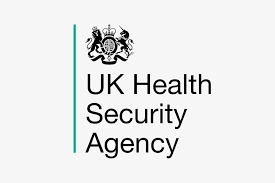
New data published from the UK Health Security Agency (UKHSA) show record levels of gonorrhoea and syphilis diagnoses in 2022.
The latest national data shows:
- Gonorrhoea diagnoses increased to 82,592 in 2022, an increase of 50.3% compared to 2021 (54,961) and 16.1% compared to 2019 (prior to the COVID-19 pandemic). This is the highest number of diagnoses in any one year since records began in 1918.
- Infectious syphilis diagnoses increased to 8,692 in 2022, up 15.2% compared to 2021 (7,543) and 8.1% compared to 2019. This is the largest annual number since 1948
- People aged 15-24 remain most likely to be diagnosed with STIs
- In 2022, there were over 400 diagnoses of STIs made each day among young people.
In the East Midlands region:
- Gonorrhoea diagnoses were up to 4,627 in 2022, an increase of 90% compared to 2021 (2,435) and up 14.4% on pre-pandemic figures for 2019
- Infectious syphilis diagnoses were up to 370 in 2022, an increase of 30.7% compared to 2021 (283) and 6.9% higher than in 2019 (346)
- People aged 20 to 24 in the region are the highest risk group for STIs
- Total number of STI consultations in the region has increased by 10.8% from the pre-pandemic figure of 244,372 in 2019 to 270,755 in 2022
Dr Benjamin Rush, Consultant in Communicable Disease Control at UKHSA, East Midlands said: “Sexually transmitted infections (STIs) is a serious public health problem in the East Midlands, with younger people (aged 20 to 24) being in the highest risk group for all top five STIs – syphilis, gonorrhoea, chlamydia, herpes and genital warts.
“Nationally, we saw more gonorrhoea diagnoses in 2022 than ever before, with a large rise particularly in young people. In the East Midlands, the majority of cases are in the 20 to 24 age group. Syphilis is also rising sharply from pre-pandemic levels, and again, cases are predominantly in young people. While cases of chlamydia have decreased in the region, it is still the same group which are most at risk of infection.
“STIs aren’t just an inconvenience, they can have a major impact on your health and that of any sexual partners. Condoms are the best defence, but if you didn’t use one the last time you had sex with a new or casual partner, get tested to detect any potential infections early and prevent passing them on to others. Testing is important because you may not have any symptoms of an STI.”
The UK Health Security Agency (UKHSA) is reminding everyone having sex with new or casual partners to wear a condom and get tested regularly – whatever their age or sexual orientation. Testing is free and confidential, and you should get tested even if you are not showing any symptoms.
Though STIs are usually easily treated with antibiotics, many can cause serious health issues if left untreated. Chlamydia and gonorrhoea can cause infertility and pelvic inflammatory disease, while syphilis can cause serious, irreversible and potentially life-threatening problems with your brain, heart, or nerves.
If you are having condomless sex with new or casual partners, regular testing for STIs and HIV is essential to maintain good sexual health. Testing is free and can be accessed through local sexual health clinics, university and college medical centres or through self-sampling kits sent discreetly through the post.
In 2022, nationally there were 2,195,909 sexual health screens (diagnostic tests for chlamydia, gonorrhoea, syphilis or HIV) performed by sexual health services, an increase of 13.4% compared to 2021 (1,936,455).
While the increase in gonorrhoea and syphilis diagnoses will in part be due to increases in testing, the scale of the increase in diagnoses strongly suggests that there is more transmission of STIs within the population.
Gonorrhoea is becoming increasingly resistant to antibiotics and at risk of becoming untreatable in the future, making it vital that people test early and diagnose the infection so that they can prevent passing it on.
Regular screening for STIs and HIV, on at least an annual basis, is essential to maintain good sexual health for everyone having condomless sex with new or casual partners. In addition:
- women, and other people with a womb and ovaries, under the age of 25 who are sexually active should have a chlamydia test after having sex with a new partner or annually.
- gay, bisexual and other men who have sex with men should have tests for HIV and STIs annually or every 3 months if having condomless sex with new or casual partners.


